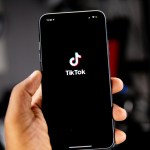Press Release
5G will transform the sports experience for fans in stadiums and at home, according to research conducted by Ovum for Amdocs, a leading provider of software and services to communications and media companies.
Seventy-six percent of network operators in Europe taking part in the study plan to use augmented reality (AR) technology, supported by 5G, to offer richer viewing experiences to fans, both at the sports stadiums and watching at home. Promising speeds up to tens of times faster and lower latency than 4G, 5G opens up the possibilities for new types of entertainment and in-stadium experiences. Audiences could, for example, watch instant replays and 360-degree streams or look up player stats via AR and virtual reality (VR) technology, bringing them much closer to the action.
5G will also transform the at-home viewing experience of sports events, with 88% of European operators planning to offer new multi-screen Pay-TV services. 5G will improve mobile TV and video quality and increase the range of mobile content available to audiences, across a range of consumer devices and services.
The research surveyed C-level executives from the world’s 100 largest operators, including operators in Europe. More than 40% of these (41%), the research revealed, also intend to own a sports team in the 5G era as they look to expand their involvement in the sports ecosystem. This is likely to result in growing investments in 5G connectivity and services at stadiums and large venues.
5G and the 2020 summer of sports
Audiences may not have to wait very long to enjoy enhanced sports fan experiences. More than two-thirds (65%) of European operators claim that upcoming major sports events, such as the 2020 European Championship, are influencing their 5G roll-out timelines. The research also reveals:
• 82% of European operators are targeting the Euro 2020 soccer tournament (June – July 2020) to kickoff 5G experiences to the consumer market.
• 94% of European operators plan to trial 5G within sports and esports venues by the end of 2020.
5G will give esports a digital upgrade
Fans of esports – professional multiplayer video game competitions – will also experience 5G-supported experiences in the near-future. All (100%) European operators taking part in the study plan to support esports in the 5G era, either as technology partners to esports event organizers (88%), broadcasters of the action (47%), or with far bolder plans, including esports team ownership (12%). Esports is growing rapidly in popularity with viewing metrics, prize money and sponsorship all increasing substantially year-on-year and is being considered for entry into the Olympics as a new discipline for Paris 2024.
Encouraging 5G adoption
Consumers wanting to take advantage of 5G will need devices that support 5G. To ensure widespread adoption of this new network technology, 41% of European operators said they were prepared to subsidize 5G-enabled smartphones and more than a third (35%) said they would subsidize 5G-enabled tablets and AR headsets.
“It’s essential for operators to find successful use cases for 5G given the investment levels. Amdocs’ research has revealed that major live sports events could hold the key to consumer adoption of 5G,” said Gary Miles, Chief Marketing Officer at Amdocs. “Operators have identified these events as the springboard for rollout of a whole range of new interactive and immersive services. This will give consumers their first real taste of what 5G can deliver and allow operators to showcase the capabilities of their next-generation networks. Expect to see the first of these new services and applications rolled out in conjunction with the 2020 soccer tournaments in Europe, among other big events in the sports calendar. We will also see operators becoming integral to the growth of esports with 5G opening the door to future investment and revenue opportunities.”
Ed Barton, Chief Analyst, Consumer and Entertainment at Ovum added: “5G is not just a new wireless technology from a network equipment provider, it’s a fundamental transformation of mobile networks, infrastructure and business models. It will drive the creation of new applications and services, which in turn will require new operating and business models, force changes across operator technology setups and emphasizing the need to integrate the new with the old. Our discussions with the world’s leading operators prove that it’s already a challenging journey. The industry has two years or less to get it right if it is to hit the ground running.”
















